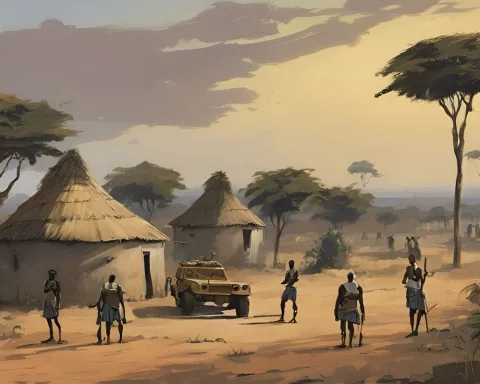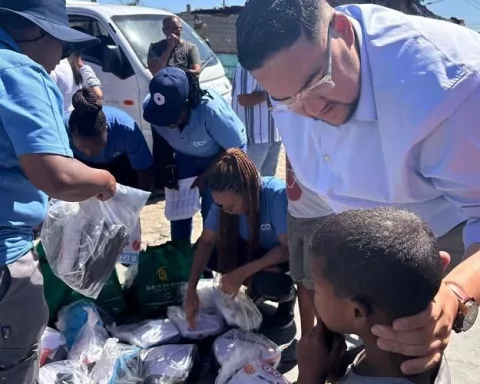The April family, consisting of 15 members comprising grandchildren and great-grandchildren, has been living in a single room that was once their grandparents’. They have been enduring hardship for the past two decades. However, their plight caught the attention of MEC for Cooperative Governance, Human Settlements, and Traditional Affairs, Nono Maloyi, who visited the deeply impoverished family along with Head of Department Kgomotso Mahlobo.
A Beacon of Hope
The Department of Human Settlements in the Ratlou Local Municipality has become a beacon of hope for the April family. Their heart-wrenching story has touched the philanthropic spirit of Otukile Kgabi, owner of MGT Projects, who volunteered his services to construct a dwelling for the struggling family.
Good News
On their visit, Maloyi and Mahlobo brought good news: a contractor would build a new house for the family. Otukile Kgabi aims to complete the project by next month, with a promise that the family would move into their new home on Mandela Day this year.
Struggling to Make Ends Meet
Idah April, a 29-year-old mother of three, explained that the family relies on child support grants and money earned from odd jobs on nearby farms. However, the adults are not eligible for social grants or old age pensions, and many do not possess identity documents, preventing them from accessing government relief funds. The assistance from Maloyi and the department is a much-needed lifeline for the family.
Corporate Investments and Diligent Contractors
Head of Department Kgomotso Mahlobo highlighted the importance of contractors giving back to their communities through corporate investments. Mahlobo also urged contractors working on different housing projects to perform their tasks diligently, as MEC Maloyi has issued a stern warning to terminate contracts with those who underperform.
Symbol of Hope
The April family’s story is a testament to the determination and resilience of the human spirit, and the actions of MEC Maloyi and the Department of Human Settlements exemplify the compassion and dedication that the government can offer to those in need. The construction of the emergency house will be a transformative milestone for the family, providing them with a chance to rebuild their lives while enjoying privacy and better living conditions.
As the family anticipates their new dwelling, the project serves as a reminder of the power of community investment and the importance of individuals and businesses using their resources to uplift and support those in need. The collaboration between MEC Maloyi, the Department of Human Settlements, and Otukile Kgabi demonstrates that when community leaders, government officials, and businesses work together, remarkable change can be achieved. The construction of the emergency house for the April family is not only a gesture of compassion, but also a symbol of hope for the countless others who face similar struggles, signaling that with the right support and determination, a better future is possible.












